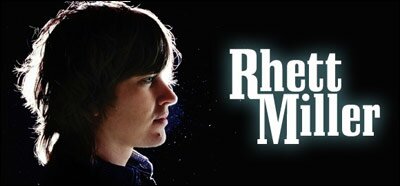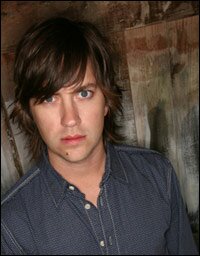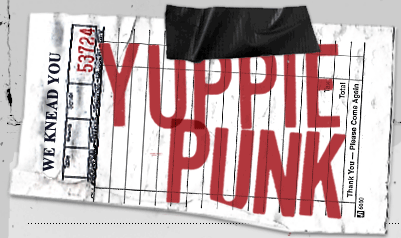Q&A: Rhett Miller of The Old 97’s

Rhett Miller may front one of alt-country’s biggest bands, but that doesn’t mean he’s not down to Earth or unwilling to talk frankly about his life as a musician with a rinky-dink website. We talked to Miller just prior to his gig at Seattle’s annual Bumbershoot festival, which we reported on here, but the conversation was larger than just Seattle and three-day rock fests. The Old 97’s frontman, who in recent years has been carving out his own niche as a solo artist, dished on the band’s song-choosing methods, the economics of being a solo artist and the joys of having a long guitar cable.
You’ve said that part of the reason you have a solo career is because the Old 97’s are a democracy, so does that mean you never sit down to write songs specifically for one or the other?
It’s rare for me to just sit down and say this song is going to be a solo song. It’s happened a couple of times. Like on the new solo record, I was leaving for Dallas, and I woke up the morning and I had the song, “Happy Birthday Don’t Die” just stuck in my head. And I knew it was the missing link on the solo record. It didn’t make any sense as an Old 97’s song. Typically, I’ll bring songs to the Old 97’s and get their opinion on whether they’re interested or not. If it’s a borderline song then we’ll try it. Sometimes they’ll surprise me, but usually I’ve got a good idea of whether they’ll go for it or not. There’s a song on the new solo record called “Another Girlfriend” that I tried to get those guys to learn for years and they just wouldn’t do it. It seemed like such an obvious Old 97’s song, but they just didn’t have any interest in it.
Is the process that you usually run through it once in practice by yourself and then everyone votes or do you work on it as a band before deciding?
I don’t know if this is technically passive-aggressive behavior, but if they don’t say anything about a song it means they don’t like it. And generally if they jump in and say, “Oh, let’s try doing it like this,” then it’s full steam ahead. But I thank god that I get to make the solo records now because before, we’d just keep playing a song and I’d force the issue and say, “Why don’t you like it?” And I’d be stuck with all these songs that I thought were good and they didn’t.
When you play gigs is there ever crossover between the set lists?
With solo bands — like the Instigators, which I put together for “The Instigator” record — we’ve always played a big chunk of Old 97’s material because they’re songs I wrote and it makes sense for me to sing them and I think the fans are into them. But the 97’s have never been willing to play songs off solo records until this summer when they were willing to learn more songs off this new record. They said they really liked it. Ken actually got on the bus the very first day of the tour and goes, “Man, you’re new record is actually good.” Gee, thanks.
Do you prefer playing stadiums at festivals to doing theaters?
With the 97’s, there’s something about our band that does well in a confined space. I hesitate to say we’re a bar band, because I don’t believe that we are. I think we can flourish in a lot of environments, but there is something special about playing in a little, stinky bar. I was going to say smoky, but there’s no more smoking in bars, except in tertiary markets. But I love a big stage. I love to run around. I have a long guitar cable for a reason. It’s fun to try and fill up the whole stage.
 It seems like you’re one of the few solo artists to have a band career going at the same time. Usually the solo career comes after the band career or people take extended breaks from their band while doing a solo career, but you seem to be able to wear both hats.
It seems like you’re one of the few solo artists to have a band career going at the same time. Usually the solo career comes after the band career or people take extended breaks from their band while doing a solo career, but you seem to be able to wear both hats.
Yeah, it was hard. And around the time of “The Instigator” it was really hard because it coincided with Elektra’s demise, and in a way, the collapse of the recorded music industry, which we had benefited from, even though we weren’t a big a radio band or had hits per se. We had a lot of marketing and a lot of people at Elektra who really loved us and worked hard for us and we really benefited from that. I’d be lying if I said we were just a self-made indie DIY band. We did a get some benefit from the end of the old model. It’s weird to have both, but I’d go crazy if I didn’t.
What about the economic considerations? It seems like having just your name on the marquee or on the records — even as the main contributor to the Old 97’s — would reap greater financial rewards? Or are the 97’s so much bigger that it really isn’t an option?
Well you develop a following with a band, and if you turn your back on that band you don’t get the same rabid fans at the shows. If I go out solo, I don’t have to split the money four ways, but the audience isn’t as big, so it’s a trade off. If it was only an economic decision I don’t know that I would have done the Old 97’s like I did from the beginning because we’ve always split our publishing and shared the money. It’s very much a democracy.
But isn’t it easier to be a democracy when you don’t make any money?
Yeah, to an extent. But Phillip and Ken, when we started the band, both had really good jobs that I convinced them to quit. And now they have wives who work, so when we’re not on tour they’re kind of glad to stay home. And that was sort of one thing that precipitated the solo record was that these guys were more and more wanting to take it easy and not always be on the road all the time. And I was thinking, “Well I don’t want to take it easy. I want to work.” So it kind of works out now because if I go out on the road they get to have their time with their kids and then by the time they get sick of me being out they want to go back on the road. It’s getting smoother and smoother all the time.
Rhett Miller’s self-titled fourth solo album is out now on Shout! Factory.
RELATED: Q&A: Davey von Bohlen of Maritime






